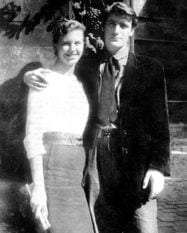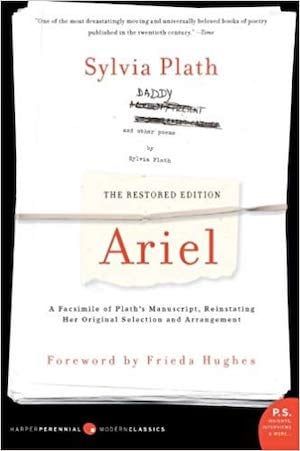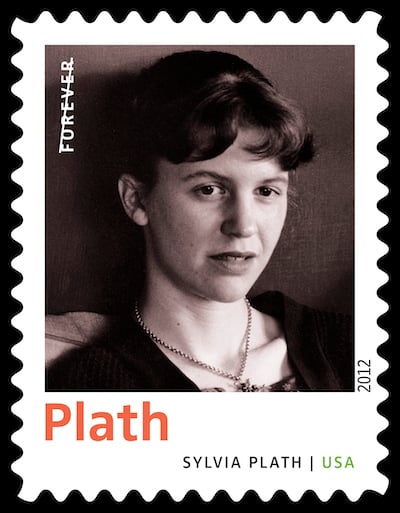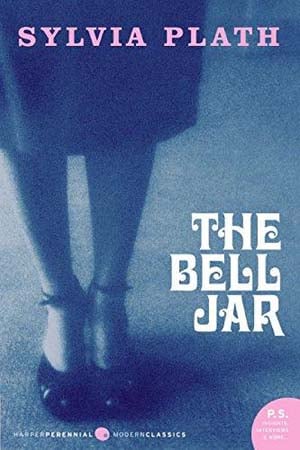The Tragic Relationship of Sylvia Plath and Ted Hughes
By Aiyana Edmund | On March 7, 2018 | Updated May 1, 2025 | Comments (19)

Sylvia Plath (1932 – 1963) was a gifted writer of poetry who ended her life at the age of thirty. Many of the truths behind her final years were exposed after her death, discovered in letters revealing the dark secrets of her tragic relationship with Ted Hughes.
Attractive, smart, and ambitious, she seemed to have what it took to succeed. But it was during her years at Smith College, where she was well-liked and academically adept, that she made her first attempt on her life.
Journal entries in her diary later revealed how much Plath struggled from that time on, until she took her own life. Her body of poetic work, much of it published posthumously, also reveals much about her state of mind during the brief journey of her adult life.
When Sylvia Plath met Ted Hughes
Plath first met poet Ted Hughes on February 25, 1956, at a party in Cambridge, England. In a 1961 BBC interview, Plath describes how she met him:
“I happened to be at Cambridge. I was sent there by the [U.S.] government on a government grant. And I’d read some of Ted’s poems in this magazine and I was very impressed and I wanted to meet him.
I went to this little celebration and that’s actually where we met … Then we saw a great deal of each other. Ted came back to Cambridge and suddenly we found ourselves getting married a few months later… We kept writing poems to each other.
Then it just grew out of that, I guess, a feeling that we both were writing so much and having such a fine time doing it, we decided that this should keep on.”
The couple married on June 16, 1956, and honeymooned in Benidorm, Spain. The following year, Plath and Hughes moved to Massachusetts, where she taught at her alma mater, Smith College.
It was a challenge for her to find the time and energy to write when she was teaching. By the end of 1959, after another move and extensive travel, the couple moved back to London.
The couple had their first daughter, Frieda, on April 1st, 1960. The next year, Plath miscarried their second child. It was later revealed in a letter to her therapist, that Plath wrote about Hughes beating her two days before the miscarriage.
Several of her poems, including “Parliament Hill Fields,” address the loss. In 1962, their son Nicholas was born. And this is when things got complicated.
. . . . . . . . . .

10 of Sylvia Plath’s Best Loved Poems
. . . . . . . . . .
Ted Hughes’ affair with Assia Wevill
In May of 1962 Assia Wevill and her third husband, Canadian poet David Wevill, were invited to spend a weekend with Plath and Hughes, who were then living in the village of North Tawton in Devon, England.
It was then, as Hughes later wrote in a poem, that “The dreamer in me fell in love with her,” and a few short weeks later he embarked on his affair with Assia Wevill.
A few months after meeting Assia, Plath and Hughes took a holiday in Ireland. On the fourth day, Hughes disappeared to London to meet Wevill, with whom he embarked on a 10 day trip through Spain, the same place where Plath and Hughes had honeymooned.
Upon his arrival back home, the marriage unraveled when he refused to end his affair with Wevill. Plath and Hughes separated in July of 1962. Just before and several times after, Plath attempted to end her life.
Plath lived in a flat with her children during the gloomy winter of 1962 – 1963, basically functioning as a single parent to her baby son and toddler daughter. As is well known, she died by gassing herself in her kitchen while her children slept soundly in a room .
The months between her discovery of Hughes’ affair and her death were remarkably productive, and much of the poetry she produced during this period was published posthumously.
. . . . . . . . . .
 . . . . . . . . . .
. . . . . . . . . .
Plath’s revealing confidential letters
In 2017, a series of confidential letters from Plath to her psychiatrist, Dr. Ruth Barnhouse, came to light in which she alleged that Hughes was physically and psychologically abusive in the last years of their marriage.
The uncovered letters were written by Plath a week before she took her life. The discovery reignited flames that long engulfed one of the most famed and disastrous literary marriages.
The letters sent to Dr. Barnhouse (the inspiration for Dr. Nolan in Plath’s autobiographical novel The Bell Jar) are considered the only uncensored accounts of her last few months alive. At the same time, she was also producing some of her most enduring poetry, including the collection Ariel (posthumously published in 1965).
Through nine letters Plath reveals Hughes’ infidelity with Wevill. Also included in the collection are medical records from 1954, correspondence with Plath’s friends and interviews with Barnhouse about her therapy sessions with the poet. The archive came to light after an antiquarian bookseller put it up for sale for $875,000.
Plath writes her account of the physical abuse she endured shortly before miscarrying her second child in 1961, in a letter dated September 22, 1962 — the same month the couple separated. Several of Plath’s poems address her miscarriage, including Parliament Hill Fields: “Already your doll grip lets go.”
In the biography Her Husband: Hughes and Plath — A Marriage, Diane Middlebrook portrayed Hughes as “a complicated, conflicted figure: sexually magnetic, fiercely ambitious, immensely caring, and shrewd in business.”
The author also argues that Plath’s death, “though it devastated Hughes and made him vulnerable to the savage attacks of Plath’s growing readership, ultimately gave him his true subject — re-creating himself for posterity through his marriage to Sylvia Plath and his struggles with his own historical circumstances.”
Further reading about Sylvia Plath’s last days
- Sylvia Plath’s Last Letters
- Why Did Sylvia Plath Die?
- Love and Suicide: Sylvia Plath & Ted Hughes
- Sylvia Plath’s Suicide Note: Did it Name a Final Lover?
. . . . . . . . . .

Sylvia Plath’s Final Words: Death Knell, or Cry for Help?
. . . . . . . . . .
Assia Wevill’s eerily echoing fate and beyond
The relationship of Hughes and Assia Wevill was fraught and troubled. In a tragic twist of fate, the stresses of scrutiny over her continued relationship with Hughes, the disapproval of his family, and his continued infidelity took their toll on her.
In March 1969, Assia Wevill dragged a bed into the kitchen of her Clapham flat, dissolved sleeping tablets in a glass of water and gave the drink to her daughter (generally believed to be Hughes’ child) before finishing the rest herself.
Mirroring Plath’s method, she then turned on the gas stove and got into bed with her daughter; they never woke up.
It took decades for Hughes to speak out about his relationship with Plath. The collection “Birthday Letters” (1998) was his response to the feminist critics who spoke out against Hughes over his treatment of Plath, especially in the 1970s.
In 1970, Hughes was remarried to Carol Orchard. In response to the letters that surfaced in 2017 claiming Hughes’ abuse toward Plath, his wife went on record to say:
“The claims allegedly made by Sylvia Plath in unpublished letters to her former psychiatrist, suggesting that she was beaten by her husband, Ted Hughes, days before she miscarried their second child are as absurd as they are shocking to anyone who knew Ted well.”
The couple remained married until Hughes’ death in 1998.
. . . . . . . . . .
The Bell Jar was a semi-autobiographical novel
portraying Sylvia Plath’s struggles with mental illness
. . . . . . . . . .
Ted Hughes as Sylvia Plath’s literary executor
When Plath took her life, she was still married to Hughes, though the couple was separated. Thus, he inherited her literary estate and oversaw her posthumous legacy.
Much of Plath’s work was unpublished at the time of her death, and Hughes oversaw the publication of some of the collections she left behind. The position he was in was quite fraught, not surprisingly.
Erica Wagner, in Ariel’s Gift: Ted Hughes, Sylvia Plath, and the Story of Birthday Letters covers the poet’s complicated legacy and Ted Hughes’ role in it. In the Wagner’s introduction, she writes:
“Hughes’ circumstances were not easy. On one hand, he was faced with an artistic duty to the work of his late wife; on the other, with his wish to protect himself and his family from the intrusions and accusations of the press and the reading public. The difficulty was compounded by the nature of Plath’s work: her unflinching gaze was forever directed at herself and those around her. She drew almost exclusively on her own experience.
… Her expression of dissatisfaction with her marriage — revealed posthumously— combined with Ted Hughes’ continuing editorial control over her material was an explosive mix.”
In 1965 Hughes released Ariel, a collection of poems Plath wrote expressing her battle with the darkness of depression, and of her relationship with her husband.
Hughes was accused of altering the order of the poems and using selective editing in an attempt to preserve his reputation. He had omitted twelve poems that Plath had earmarked for the collection, and included twelve others of his own choosing. In 2004, a restored edition of Ariel was published.
Through the 1970s Hughes continued to release Plath’s poems, but was met with criticism over his selections and decisions of what works to release.
Plath and Hughes’ son Nicholas followed his mother’s tragic path, taking his own life on March 16th, 2009, at age 47. Their daughter, Frieda Hughes, is an artist and poet.
. . . . . . . . . .
More about Sylvia Plath’s released letters
- The Letters of Sylvia Plath Volume 1 review – why Plath can’t win in a world of male privilege
- Ted Hughes’ widow criticises ‘offensive’ biography
- ‘Dearest Teddy’: Sylvia Plath’s love letters to Ted Hughes published for the first time
- Why Do We Struggle to Believe Ted Hughes Abused Sylvia Plath?
- Sylvia Plath and Ted Hughes’s daughter Frieda: Why I’m becoming a counsellor
Books about Sylvia Plath and Ted Hughes’ relationship
- The Silent Women: Sylvia Plath and Ted Hughes (1995)
- Ariel’s Gift: Ted Hughes, Sylvia Plath, and the Story of Birthday Letters by Erica Wagner (2000)
- Her Husband: Hughes and Plath, a Marriage by Diane Middlebrook (2013)
More about Sylvia Plath on this site
- Sylvia Plath’s Suicide Note: Death Knell, or a Cry for Help?
- 13 Artist’s Portraits of Sylvia Plath (Including Her Own)
- Fascinating Facts About Sylvia Plath
- Dear Literary Ladies: How can one persevere when writing pays so poorly?

I read Bitter Fame and it seemed to turn Hughes into an anti-hero. He was typical of far too many Englishmen: brutish, sexist cheaters. His love for Plath was a sham. Why was she so fragile? That is the question.
Ann, one big reason she was so fragile was that she struggled with what might now be called bipolar disorder, and they simply didn’t have the kind of treatments that there are today (which help, though are not perfect). She had been hospitalized at least a couple of times. Having Ted Hughes as a husband certainly didn’t help matters.
Fantastic summary! (I think this page is about to get way more traffic as Swifties start really digesting TTPD…)
Oh wow, that’s interesting … I wonder if Sylvia Plath is directly referenced in TTPD. As it is, this article is always in the top three of views on the site, ever since it was posted several years ago — interest in Plath is endless and enduring!
Sylvia Plath, the wife, committed suicide, then Assia Wevill, the married other woman, murdered her daughter who was fathered by him as she killed herself.
These women killed themselves because of the same man. Then in the end, this man got himself a new woman whom he stayed married with until his death.
How he managed to not kill himself despite the tragedies is beyond me.
So yah, ladies, do not kill yourselves when you lose your partner to another man or woman. If someone like Ted managed to stay alive and be loved, you deserved it more. ♡
I think the feminist movement could have helped Plath – did her shrink have insights? What light is shed by “Birthday Letters”?
Tough Love
I also agree with Dorothy that so many people failed Sylvia. Today we are much more aware of mental health and there’s support for these issues in lots of places but being a person that has struggled with suicide myself, regardless if it’s the 1960’s , 500 B.C or 2022 , mental illness breeds isolation and left to yourself, you can believe & be convinced that there’s NO hope & NO ONE cares. I grieve and weep for & with my fellow soldiers who battle mental illness because it’s CATASTROPHIC to oneself and then the guilt you live with and the haunting feeling EVERYONE is better off without you is rough stuff to fight all alone. Many people have opinions about Sylvia Plath but the raw truth is she WAS alone the night she committed suicide and nothing can change that fact!! I wonder if she would’ve had a friend or her husband with her that night, would she have given into the darkness that seemed to plague her mind & ride her thoughts??
EXCELLENT article, By Aiyana Edmund, thank you for sharing. I recall traveling to Ashland, Oregon to explore the Shakespeare Festival & happened upon a movie theatre showing the film “The Bell Jar”. I was eerily drawn to attend a showing, which may quite likely ignite a spark to a future occupation of writing, now fast forward to today reading this article about the life of Sylvia Plath. I did not know her story, which for me reminds me, in a way slightly of the Hemingway’s relationship… slightly. I look forward to reading her literary genius… thank you again! Wishing you & your family GOD’S RICH BLESSINGS & MIRACLES continuously abounding! Elle💗
Ted Hughes tried to rise up behind the real genius of Sylvia Plath and the fact that he owned the rights to her poetry is a representation of his misogyny. He is is not, nor has ever been her literally equal. He was a male whore. He should be recognized for exactly for that and a male opportunist.
Think of him as a male Yoko Ono.
Sylvia Plath had seen a lawyer for advice about divorce, finances before she died. She had only to make a Will if she so distrusted Ted Hughes with her poetic legacy.
A feminist automaton sees the world through the eyes of a child. Relationships aren’t black and white, Though if one is a child, they are.
Yes How did Mr. TED HUGHES die and his son Nicholas Hughes die how did it
happen and what age TED and Nicholas ?
Joe, Ted Hughes died of cancer in 1998, at the age of 68. Nicholas Hughes, the son of Hughes and Sylvia Plath, committed suicide in 2009. He was 47.
There is a great deal of testimony by friends, and even a detailed account by one of Plath’s friends about that last week of her life. I am no apologist for Ted Hughes. He was never faithful to any woman and had multiple affairs over the years, but I would mistrust anything Plath said in the last week before her death. However, in her defense, Ted Hughes should have realized how ill she was that last week. I simply can’t get that out of my mind, how ill and fragile she was and how people just let her die. This includes Hughes, but there were others.
Thanks for your comment, Melinda. Also, to add to what you’re saying, that she was left to fend for herself when so fragile, and taking care of two small children without support.
I just watched the film “Sylvia”with a fine performance by Gwyneth Paltrow. I can relate very well to her story, living in the same era, losing my creativity, unfaithful husband, beloved small children and depression. I could not bear leaving my children and so I am here today at 85 years after a complicated life full of sorrows and joys. It hasn’t been easy, but I am glad I did what I did.
Thanks so much for your comment, Dorothy. I haven’t seen the film, but it’s on my watch list. It’s true, sometimes we do what we need to do in life even when there’s a big price to pay. Thank you for being a Literary Ladies reader!